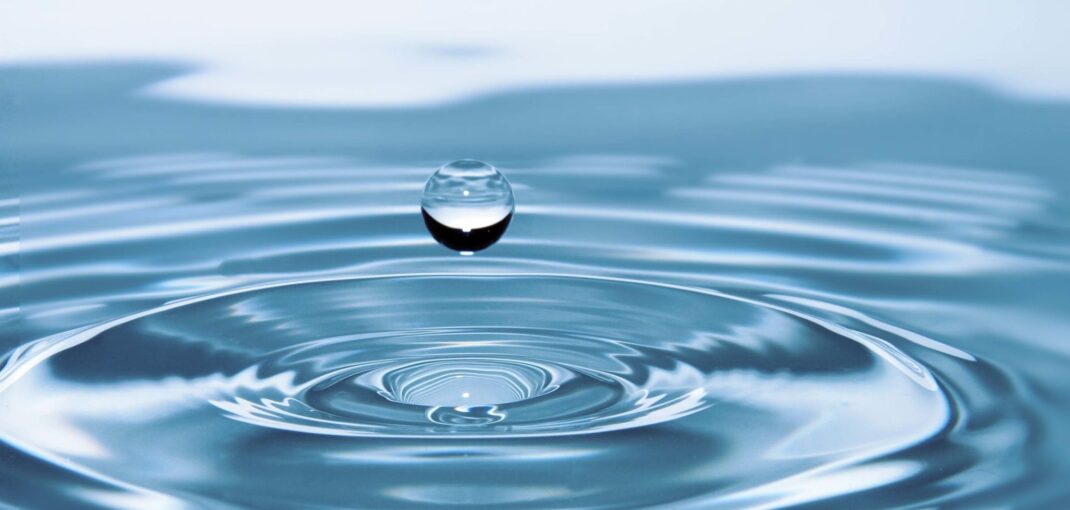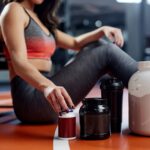Whether you’re just hitting the beach for vacation and want to look your best or you plan to walk the stage of a fitness or bodybuilding competition, water weight is something that will be on your mind.
You spend months working hard, burning fat and following a strict diet and workout protocol. The last thing you want is for your big day to come and for you to be noticing a level of puffiness under your skin that you haven’t seen before. Yet, if you aren’t careful about your food intake, your sleep schedule, and your emotional state (yes, your emotional state!), you may experience just that.
Water weight can be brought on by so many things that at times, it may seem uncontrollable. Most people think that water retention comes simply from eating too much salt in their diet, so if they just focus on reducing the salt content, they will be fine.
While too much salt will definitely lead to increased water retention, salt isn’t the only factor at play. You need to get control over some other critical points as well.
The good news is that there is a lot you can do to help reduce the level of water retention you experience. This includes everything from using natural diuretics to changing your food and liquid intake.
Let’s walk you through some of the tips that you need to know to successfully cut water weight and how to use diuretics safely.
Using A Diuretic
First, let’s address what a diuretic is so that much is clear. A diuretic is a substance that will help to flush water out of the body, removing excess water retention. In a medical setting, these can often be used for a variety of reasons. This may include helping reduce tissue swelling taking place, to help those who are dealing with diabetes and who are trying to manage more severe swelling, to assist those who are battling congestive heart failure, as well as in some cases, to help treat kidney dysfunction or kidney stones.
In these situations, they are used under strict medical guidance.
In other cases, diuretics are simply used to help you look good. This is most popular in the bodybuilding and fitness cultures as these individuals get down to a point that’s lean enough where a diuretic will make a difference. Keep in mind that if you have 25%+ body fat, you likely aren’t lean enough where dehydrating the body temporarily will make muscle definition more visible. You’ll still have too much body fat covering the muscles, even without the water, to notice.
There are also natural as well as synthetic diuretics available. Dandelion root, celery, green tea, and juniper, for example, are all very commonly used naturally occurring diuretics and are ingredients (amongst others) you may see in diuretic products. This said, don’t think that just because it’s natural, it will not come without side effects. It’s still causing water to be flushed from the body, and any time this is happening, there are potential side effects.
Some of these side effects1 include feeling extreme thirst, suffering from fatigue and muscle cramping, feeling light-headed, and dealing with ongoing headaches.
Unless required for medical reasons, using a diuretic is never a safe long-term plan. You can use them in the short term if you are getting ready for a show or special event, but immediately after you should be rehydrating the body once again.
If you are going to use a diuretic, speak to your doctor first to ensure the safety of doing so. Even if it’s just for a few days you plan to do it, get the all clear. Then use it for as little time as necessary to achieve your desired result. Remember that there is much you can do in other areas to help flush out excess water.
Finally, be smart with dosages. Use what’s indicated by the package and no more. Some people may be tempted to up their diuretic dose thinking that it’ll help them shed more water weight and get even leaner, but this is a mistake. For safety reasons, never overdose on one of these products.
Looking At Dietary Factors
Now that we’ve covered some info about diuretics and how they can help you shed water weight, what can you do with your diet?
Diet will play a significant factor in looking your best, which by now you’ve probably already figured out. If you’ve already put in the time and hard work on a proper cutting diet to lose fat, now you just need the finishing touches to help lose water.
Certain foods also contain diuretic properties, so it can help to have these in your diet plan. These foods include asparagus and celery2 (which are most commonly used due to their low calorie, low carb nature), watermelon, grapes, and berries.
In addition to getting these foods in, many people find that dramatically slashing their carb intake about a week prior to the event will also help. This is because carbohydrates do cause the body to hold excess water, so when you deplete your muscle glycogen levels (carbohydrate storage), you tend to lose a lot of water weight with it.
This is also why those who use a very low carb diet for fat loss purposes often notice a significant decrease in weight for the first week or two3. Their body is losing a combination of fat but more importantly, water.
You’ll also want to watch your sodium intake because as noted in the introduction, salt will cause water to be pulled into the cells. This said, don’t adopt a no-salt diet a full week before. If you do that, you may run into electrolyte imbalance issues and this could become very dangerous, very fast. One or two days eating a much lower salt diet should be okay, but otherwise remain at a normal intake (most people eat higher than normal, so keep in mind this will still involve a cut back).
Taking Exercise Into Account
You’ll also want to think about your exercise routine as well. Stressful exercise that leaves you inflamed can also lead to water retention, so you’ll actually want to do less, not more. Most people think they need to exercise harder right before they step on stage when you’ll be best served by doing a few ‘pump’ sets in the gym and getting out.
Cardio should be eliminated in most cases. If you aren’t lean enough to where you want to be one week before your event, no amount of exercise in the world is going to get you there.
Should You ‘Carb Up’?
Finally, one thing that you will want to consider as you deplete your water is whether you’ll want to do what’s referred to as a dry carb up. Those who remove the carbs from their diet a few days before the event may notice they lose water, but this leaves their muscles looking very flat.
Without carbs you can end up looking quite stringy and rather unaesthetic. A carb up can help this and if you do it without drinking water, the body won’t have the incoming water to cause the water retention. The carbs will still help make you look more vascular and full, so temporarily you’ll get the look you’re going for.
Note though, this can make you feel very uncomfortable and you will be thirstier than a horse who hasn’t had water in days, so you’ll need to weigh the pros and cons. For some, it simply isn’t worth it.
There you have it, a few details on how you can successfully cut water to look your best for an event. Cutting water is a process and generally isn’t a comfortable one, but with the right approach, you can do it safely over the short term. Note that trying to eliminate water from the body for any length of time is never a wise idea.
References:
- Weinberger, MYRON H. “Diuretics and their side effects. Dilemma in the treatment of hypertension.” Hypertension 11.3_pt_2 (1988): II16.
- Al-Howiriny, Tawfeq, et al. “Gastric antiulcer, antisecretory and cytoprotective properties of celery (Apium graveolens) in rats.” Pharmaceutical biology 48.7 (2010): 786-793
- Friedman, Allon N., et al. “Comparative effects of low-carbohydrate high-protein versus low-fat diets on the kidney.” Clinical journal of the American Society of Nephrology 7.7 (2012): 1103-1111.







